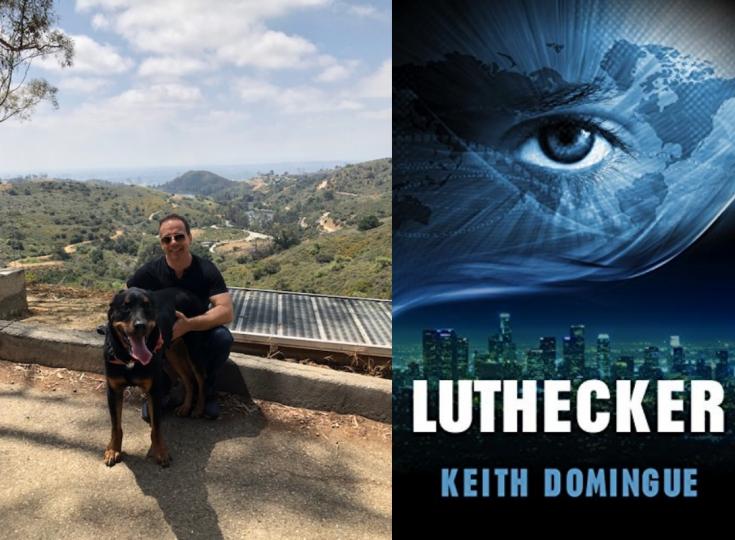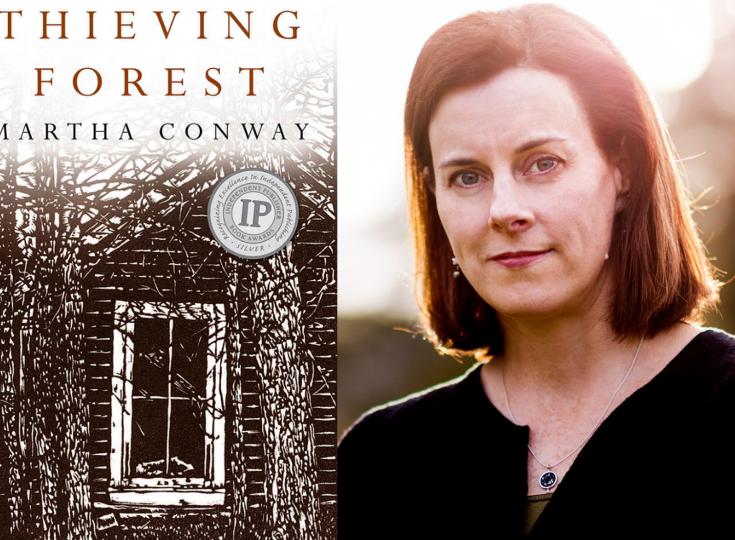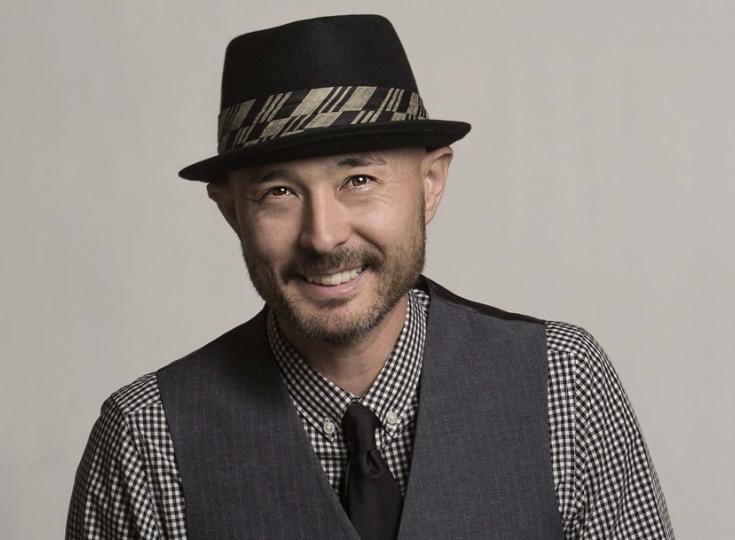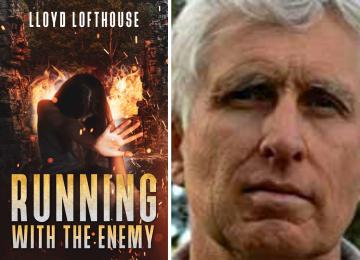Keith Domingue - Recognizing Patterns in Uncanny Detail

Keith Domingue is a screenwriter living in Los Angeles, and has written scripts for Sony Pictures, MGM Entertainment, Dimension Films and Village Roadshow Pictures. Also a fitness coach and avid martial artist, he splits his time between the computer screen and the gym. As our Author of the Day, Domingue tells us all about his latest book, Luthecker.
Please give us a short introduction to what Luthecker is about.
A young man who can recognize patterns in people and change their fates prevents a mass murder and becomes a fugitive in the process, hunted by those who seek to use his abilities for their own gain.
What inspired you to write about someone who sees patterns in people and the choices they make?
I really appreciate that question. I’ve always looked at Luthecker’s abilities as an extension of our own instincts and observations, should we choose to trust them. Here’s an example, albeit a difficult one. Many years ago I had a friend die of a drug overdose. It was tragic, a bit of a shock, but not a surprise to any of his friends. We knew how this was going to go for him, we just didn’t know when. So when I got the call, I just knew. And it’s not like we all didn’t try to intervene, but these were his choices and we were powerless to change them. Of course there’s always outside influences, environment, Karma if you will, but the bottom line is change is hard. Which is really the other half of Luthecker’s ability.
Often times, we look at both our world, and the world at large, and we have a good sense of where things are headed. But the momentum of events, life itself, makes change seem impossible. When I thought of Luthecker, I thought, what if someone could come along and free you of that sense of impossibility? What if someone gave you permission to change?
But this isn’t free, right? There’s an old saying in the healing arts, be it psychology, AA, or criminal rehabilitation, that you can’t get any better until you admit what you did. And with Luthecker, that’s the instantaneous price. A shock to the system, a break down of the world as you know it, a shattering of ego. A very difficult proposition for those who are not ready to face themselves.
I recently pitched Luthecker to a movie studio exec and said “Luthecker is a walking wake up call,” and he said, “Man, we could all use that.”
So that’s why I think as a character, he resonates with people.
Tell us more about Alex Luthecker. What makes him tick?
There was a reviewer who once described Alex Luthecker as “someone who thinks they’re saving the world by not participating in it,” and I thought, man, that’s great. Because I didn’t think that, but in many ways it’s true.
But he has to save himself first. He has great power as an observer, but if you get close to him, if he loves you, that power goes away. That’s because people you love become part of you. And the one fate he can’t see is his own.
So allowing himself to love others is a level of vulnerability that he struggles with. It begins with his friends, the only real family he’s ever had, and his eventual love, Nikki. She’s a pattern reader in her own right, via the cyber universe, and she has to teach him the way- to let go, to surrender to the unknown. And for a guy who knows everything at a glance, that’s a big leap of faith. But love is like that for all of us, right?
(Alex and Nikki’s relationship is explored in more detail in the sequels RISE, and REVOLUTION.)
You have done a lot of screenwriting for big movie studios such as Sony, MGM, Dimension Films etc. How did this influence your writing, and how much different is it to write a novel?
Novel writing is a much bigger canvass to paint on so to speak, compared to screenwriting. In the first, you’re master of the universe, in the second, you’re more of an observer of the story and characters that controls the narrative. There’s a visual aspect of story telling that transfers well from screen architecture to novel. There’s also efficiency to the process of writing screenplays that transfers to novels well, I think. Meeting deadlines is one. Getting into scenes as late as possible and exiting them as soon as possible is another. In the end the skills are complimentary.
The plot line contains a lot of twists and turns. Did you plan it all out before you started writing?
Structurally I do a rolling outline. I’ll plot out several chapters, see where I’m at when I get there writing-wise, and repeat. I have a general sense of the end game ahead of time. Luthecker was originally designed as a trilogy. I built the hook of the first chapter and designed the world from there. The Antagonist is as much a concept as it is a collection of villains, and that was there too. And the last line of the last book was in my head before I began. I knew I had a long journey to get “there.”
Readers say you got them into the action right from the start. How did you pull this off?
That’s the screenwriting pedigree. If you don’t get out of the gate fast in that medium, you’re in trouble.
Besides writing, what other secret skills do you have?
I’ve done martial arts most of my life, and have studied kinesiology and physiology. My other passions are movement and meditation. Learn when to move, learn when to be still. Challenging concepts in sedentary, digitally connected, social media driven world.
I also have a great talent for eating Italian food, holding my lady’s hand, and negotiating couch space with the dog.
What advice would you give to your younger self?
Same thing I tell my nephews- 100% faith, 100% gratitude, 100% effort will get you where you need to be. The challenge is keeping that needle at 100%. If you structure your thinking that way, when you’re having a bad day, figure out which needle has dropped, and work on that.
But above all else be kind.
If you could have been the original author of any book, what would it have been and why?
I’ll answer this more as in a work that I’ve truly admired, for concept, (incredible) craftsmanship, and creating “new windows to look at the world through.” I, Lucifer, by Glenn Duncan.
How do you force yourself to finish what you're doing before starting the next project when the new idea is nagging at you?
I’ve learned over time that ideas aren’t the hard part execution is, so I don’t get too excited about thoughts unexplored. If something does stay with me, I put a logline in a file, come back to it when I’m done what I’m working on.
Among the wealth of characters in Luthecker, who was the most difficult to create?
Nikki. I wanted to create a woman of agency that was authentic. I made no move with her without consulting the woman in my life. I’d write a scene, or exchange, or a thought process, share it and ask, “Is this right?” The process made for many great conversations and learning experiences. I wanted to create a female character that men would respect and women would relate to.
Do you have any interesting writing habits? Favorite writing spot, music you listen to, favorite time of the day to write, etc.?
Want a clean house and have all of your errands run? Write a book.
Where can our readers discover more of your work or interact with you?
You can check out my website: authorkeithdomingue.com . Thank you and everyone who took the time to read Luthecker, and feel free to drop me a note, ask questions, leave comments!






